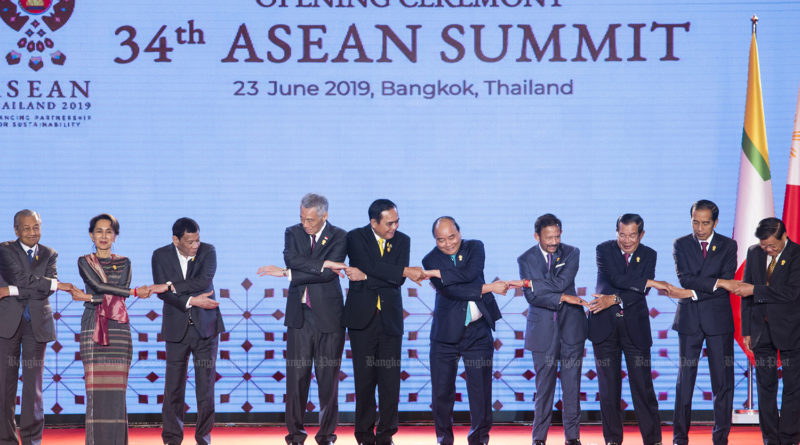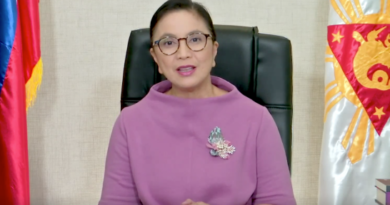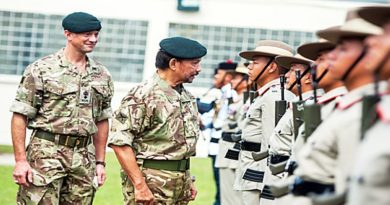ASEAN: BANGKOK: Calls for unimpeded access to the South China Sea
Southeast Asian leaders have called for unfettered access and freedom of overflight in the South China Sea amid China’s military buildup and sprawling claims in the resource-rich waters.
This was reflected in the Association of South East Asian Nations (ASEAN) Leaders’ Vision Statement on Partnership for Sustainability that was adopted in their summit in the Thai capital of Bangkok on Saturday.
In the communique, leaders cited “the importance of maintaining and promoting peace, security, stability, safety and freedom of navigation in and overflight above the South China Sea.”
The South China Sea encompasses vital sealanes and is believed to be rich in oil and gas and mineral deposits.
ASEAN groups the Philippines, Singapore, Thailand, Indonesia, Malaysia, Brunei, Vietnam, Laos, Cambodia and Myanmar. Of these 10, the Philippines, Brunei, Malaysia and Vietnam, have disputes with China in the resource-rich waters.
In July 2016, the Hague-based Permanent Court of Arbitration delivered a sweeping victory to the Philippines on the case it filed against China and declared as illegal Beijing’s claim over nearly the entire South China Sea.
Ignoring the ruling, China reclaimed nearly 3,000 acres of land, transforming formerly submerged reefs into military outposts equipped with radars, surface to air missiles, landing strips and huge buildings – a move that alarmed claimants and other countries and ASEAN dialogue partners the United States, Japan and Australia.
Code of conduct
To prevent tensions, Southeast Asian leaders have committed “to work actively towards the full and effective implementation of a non-binding 2002 Declaration on the Conduct of Parties in the South China Sea (DOC) in its entirety.”
They also committed to “an early conclusion of an effective Code of Conduct in the South China Sea (COC).”
The Philippines is the current country coordinator for ASEAN-China, which discusses the planned code of conduct, and will lead the dialogue until 2021.
A regional code of conduct aims to prevent conflicting territorial claims in the vast potentially-oil rich region from erupting into violent confrontations or worse, an economically-devastating major conflict.
Finalizing the code has acquired urgency due to series of confrontations between China and its smaller Southeast Asian neighbors with competing claims to the waters, like the Philippines and Vietnam.
A Chinese vessel recently rammed a Philippine fishing boat in the Recto Bank off the western Philippine province of Palawan. The incident occurred within Manila’s Exclusive Economic Zone.
ASEAN leaders have called for “self-restraint in the conduct of activities and avoid actions that may further complicate the situation.”
Parties involved should also pursue the “peaceful resolution of disputes in accordance with international law, including the 1982 United Nations Convention on the Law of the Sea (UNCLOS), while enhancing mutual trust and confidence,” the document said.
The leaders also emphasized the need to enforce the Code for Unplanned Encounters at Sea or CUES, the Guidelines for Air Military Encounters, Guidelines for Maritime Interaction and the ASEAN Direct Communications Infrastructure “to promote communication, mutual trust and confidence, and reduce miscalculations and mishaps in the air and at sea.” — DVM, GMA News
.











